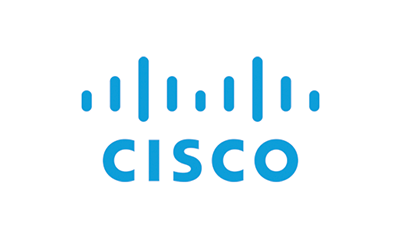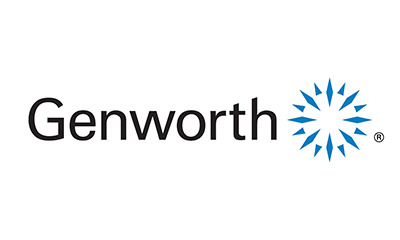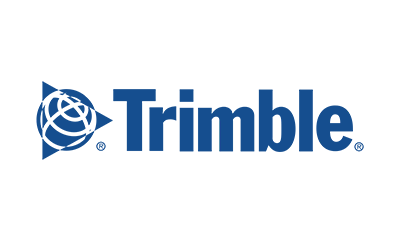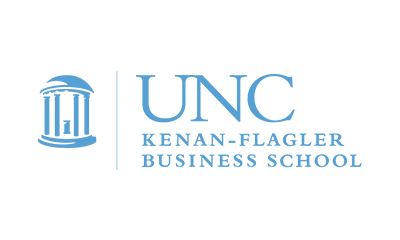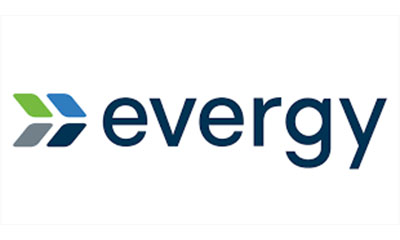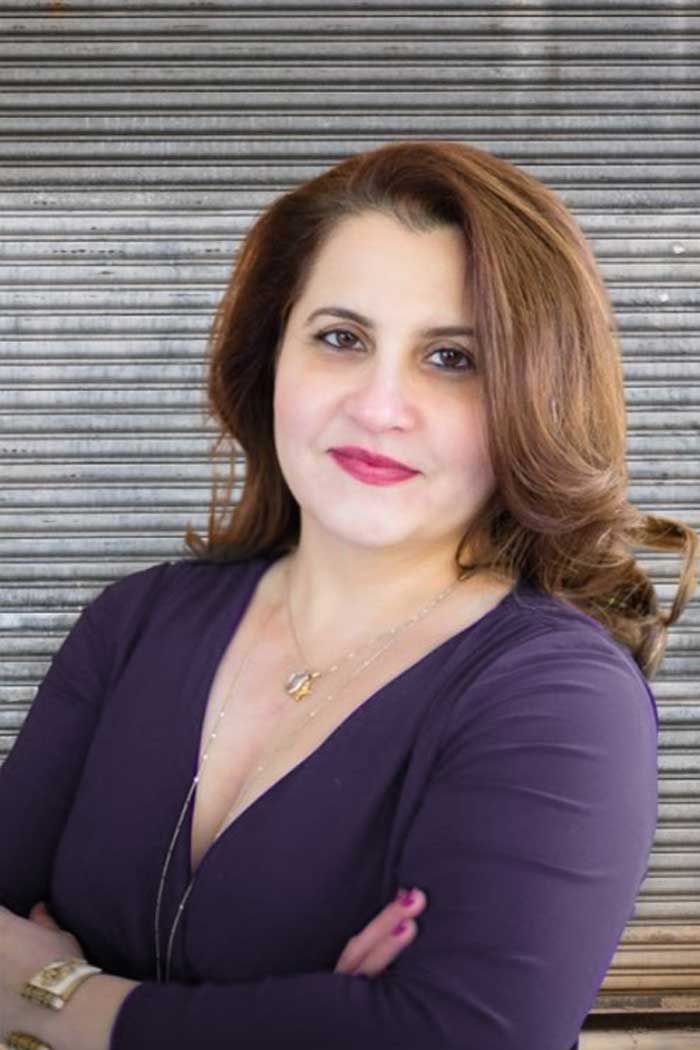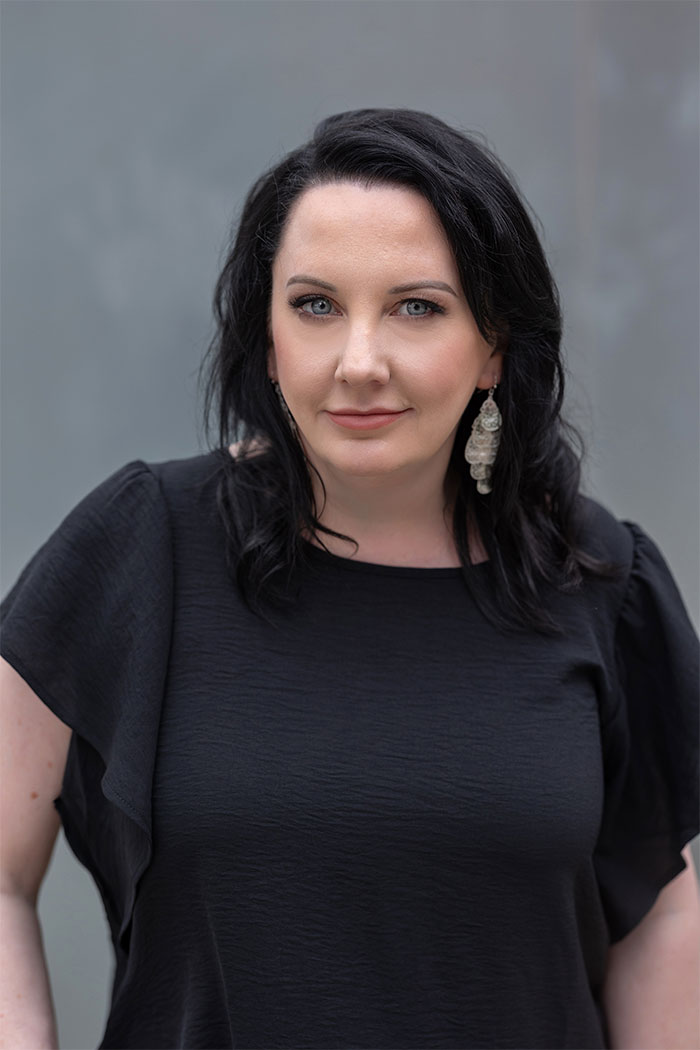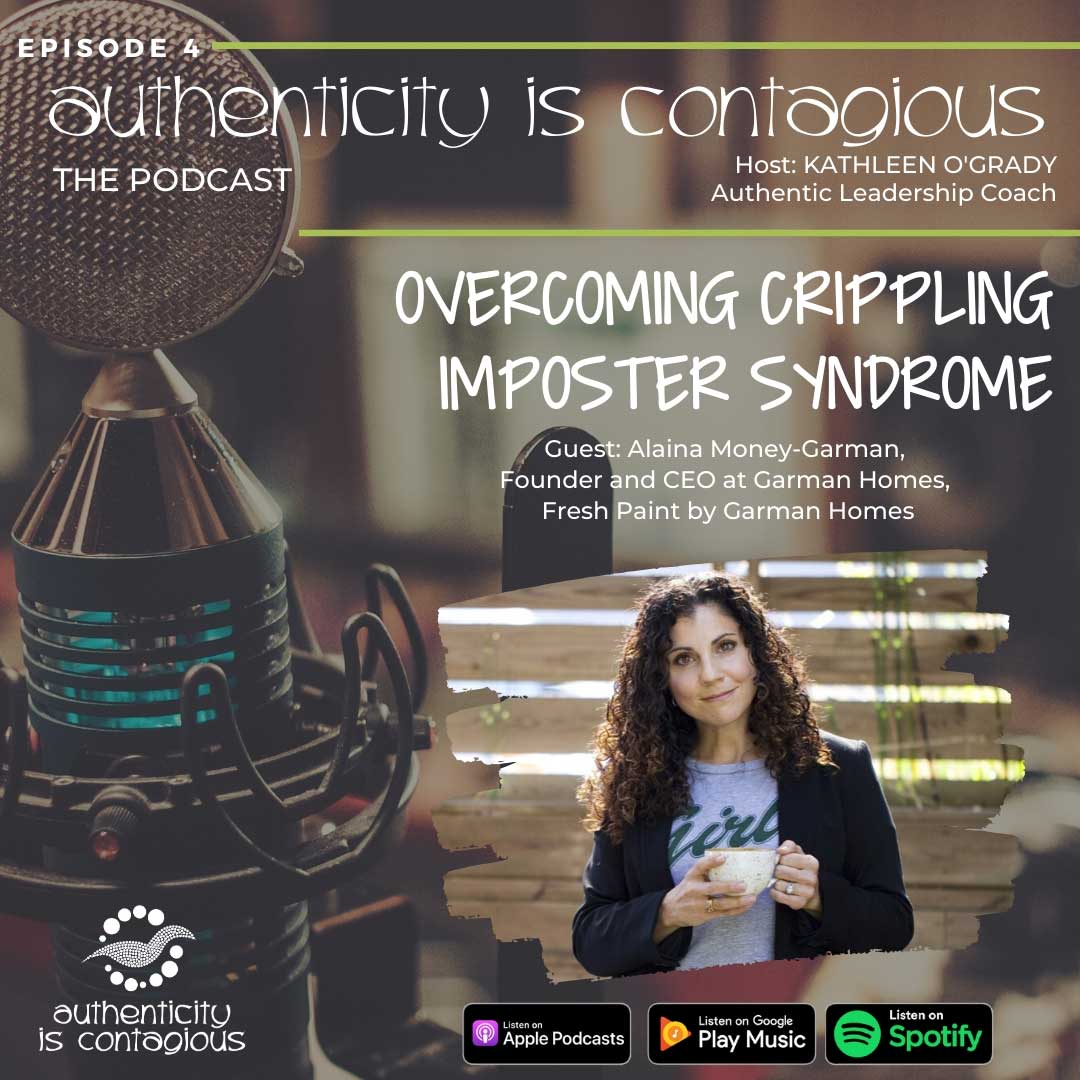
Episode 4
Overcoming Crippling Imposter Syndrome, with Alaina Money-Garman
Alaina Money-Garman has had to battle shame, imposter syndrome, sexism, and so much more to become her true authentic self. Today she talks about her rise as a woman in an industry dominated by men, the shame of breaking up her marriage to be with her boss, the imposter syndrome because she knew what people thought was the reason she was at the top, and her amazing giveback as the CEO of Garman Homes and Fresh Paint by Garman.
SHOW NOTES
Alaina Money-Garman has had to battle shame, imposter syndrome, sexism, and so much more to become her true authentic self. Today she talks about her rise as a woman in an industry dominated by men, the shame of breaking up her marriage to be with her boss, the imposter syndrome because she knew what people thought was the reason she was at the top, and her amazing giveback as the CEO of Garman Homes and Fresh Paint by Garman.
Founder of Authentic Leadership Advisors and Authentic Leadership Advisors Academy, Kathleen O’Grady is a visionary leadership coach and fearless leader. She supports driven individuals and organizations to achieve the impossible. Her ability to act as a catalyst for people to discover, rediscover, and embrace their unique genius is what makes Kathleen one of the most sought-after global executive coaches. She is a two-times past president of the International Coaching Federation Raleigh Chapter, and her work is featured in web articles by the NYTimes.com, Huffingtonpost.com, Forbes.com, and eFinancialCareers.com.
Her real-world stories, practical tools, and actionable insights help clients step out of their comfort zone to create authentic meaning and purpose in their life and work. By embracing change, Kathleen believes everyone can achieve something extraordinary.
Authenticity is Contagious is produced by Earfluence. Intro and outro music provided by Autumn Rose Brand.
Transcript
Voiceover: You’re listening to the Authenticity is Contagious Podcast with Kathleen O’Grady, where she and her guests discuss what it means to choose your authentic self –to remove negative energy, to live a calmer life, and to become more – a more heart-centered person, a stronger leader, a better partner, and friend. Come join us on this journey of creating the life you’ve been missing out on, one intention at a time. Here’s your host, authentic leadership coach and founder of Authentic Leadership Advisors and Authentic Leadership Advisors Academy, Kathleen O’Grady.
Kathleen O’Grady: Welcome to episode two of the Authenticity is Contagious Podcast. My guest today is Alaina Money Garman CEO and Founder of Garman Homes and Fresh Paint by Garman. Welcome, Alaina.
Alaina Money-Garman: Thank you.
Kathleen O’Grady: I am so excited to have you here. I can barely stand it.
Alaina Money-Garman: I can feel it, I’m excited too. It’s so fun.
Kathleen O’Grady: And it’s Valentine’s Day.
Alaina Money-Garman: I know. I love it. A day of love.
Right? It’s very appropriate. The universe knew exactly what it was doing. Putting us together.
Kathleen O’Grady: Well, I know about your background, but that listeners don’t, so if you wouldn’t mind just giving a short snippet of the story of you leading up to when we got to that epic phone call, that epic first phone call.
Alaina Money-Garman: Oh, okay. Yeah. So the story of me begins in many different ways, but I found my way into home-building as an adult. I wasn’t studying it and I thought I would be in healthcare and found my way into homebuilding because I was asking people, I was looking for someone who loved what they did because that was my goal, was to find a profession that I could love what I did because in healthcare I was crying to and from work every day.
And so I quit when I was seven months pregnant with my first daughter. And roughly $50,000 in student debt. So I was, you know, the score was pregnant, jobless. Massive debt. So super fun time, and just wanting for myself to find something that I love to do, that I could love to do. So I found someone who loved what they did.
The first person to answer my question. Yes. I love what I do. Sold onsite for a builder, a large national builder. And so I went to work for that builder cause I thought I can do that. And I had no idea how much money they made. And, but once I found out, I was like, Oh, and I can pay my debt off. So I loved it.
I ended up loving it and I kind of, so I fell into home building that way. And you know, I have this theory that if you love what you do, you can be great at it. And if you only just like it, you’ll only ever be pretty good. You’ll always be beat by the people who love it. And I wanted to be great and I loved it and I kind of went after it.
And worked for two large national builders. Had two more daughters. Previous to my third daughter, I ran into Jim Garman, who we had worked together at that large national builder. And he had started his own company and I just wanted to be part of starting something from nothing.
He didn’t offer me a job, but I told him I was going to come work for him to start a sales team. And he said, okay, and, spoiler alert. He’s now my husband. So we built Garman Homes from nothing to something together. And that was 13 years ago, next month, and now we build just under 200 homes a year.
And yeah, I’ve done everything from start the sales team to managing construction to division vice president, then division president. And then I joined him on the ownership side through our coaching venture. And um, the spoiler alert, the marriage part, we were married to different people when we started the company.
And quickly became best friends. And then at a certain point, we kind of both had this, We’re not best friends, like, this is a, this is a wonderful thing and an awful thing. And I think we kind of broke both our hearts and a lot of hearts around us. And it was really difficult time. And I was division president at the time.
And it was a lot of chaos. And I had gotten to a point in my career where I really needed to talk to somebody outside of people that worked for me or around me or knew me, and I got your name and I called you and I kind of spilled my guts. Right? I was like, I have been carrying around this guilt and shame and you know, kinda confessed to you I think.
Like, here’s what I’ve done. Oh my gosh, now what? I remember so clearly you said, well, we got to get rid of that. The guilt and the shame, and I thought like exhale a little deeper. Like you mean I don’t have to carry that around? Like I don’t, I don’t have to walk around feeling like this. And I felt so hopeful from that moment on.
And then, and then working together with you is such a transformative experience. And I was just probably like a little shadow of who I am today. When I showed up at your door, I think. I was very lost in my own skin.
Kathleen O’Grady: Well, my memory of that first phone call was, correct me if I’m wrong, but I think I was even in the pedicure chair.
Alaina Money-Garman: I called you and you said, do you mind if I call you back? Do you mind if I talk while I’m getting a pedicure? No, of course not.
Kathleen O’Grady: And so I was sitting there riveted listening to you unpack your story, and as I’m sitting there, I’m thinking. I love this woman already. I can’t wait to do whatever I possibly can to help her heal from this.
And you’re right, you were so much more muted, I would say, because you are, you’re, your light was kind of hidden under all of that low level energy from the stories you were telling yourself
Alaina Money-Garman: And the stories that I was being told.
Kathleen O’Grady: Well that too.
People can be wretchedly judgmental.
Alaina Money-Garman: It was awful. Yeah. I had turned the volume way. I had turned the, you know, the dimmer. If it’s a dimmer switch, since we’re speaking in light. I had turned it all the way down cause I was just too afraid and too raw. It was, it was painful. It was really a dark, not fun time, but I felt the love immediately. I felt that.
Kathleen O’Grady: It’s still there.
Alaina Money-Garman: I know. It’s very fun.
Kathleen O’Grady: And so when you imagine where you are now versus where you were when you made that phone call, what do you want to say to people listening who might find themselves in a taboo love of their life scenario? Any scenario where their, their heart is pulling them in one direction, but societal expectations or norms or harsh judgment is expecting them to go a different way.
Alaina Money-Garman: First of all, if you’re going through that, I’m sorry. It’s, it’s not fun and it’s not easy and it’s just, I would encourage people to get really, really quiet. Just be still and be quiet because there’s a voice inside your head that knows. That knows that whatever you need to do, whatever path you need to take is the right path.
And I think that we ignore that voice for so long because of the what ifs. Because you know, what are my children going to think, what’s my mother going to say? You know, what are all these people that work for us, frankly going to do? But I knew it was the most natural decision in the world. That also happened to be the most heartbreaking one.
And I, you know, breaking my children’s hearts was horrible. I could only make it make sense in my, in my head, in my heart, knowing that I would rebuild it for them and we would rebuild it stronger. And I think being, maybe that’s from being a builder, maybe that’s just from knowing that deep down I didn’t know how I was going to do it.
I just knew I had to. And I knew that that really small, still quiet voice was telling me to do it, this is what I need to do. And I, I think you just have to get quiet. You have to ignore all the voices except the one inside you that knows. And even if you don’t know how it works, you know that you can’t stay where you are.
Kathleen O’Grady: Right.
Alaina Money-Garman: And have a really open mind about all the things that happen because it’s not linear. It’s sort of chaos. And you just got to stick to your solid ground. And for me, my solid ground was, I’m healthy, my kids are healthy. I have everything I need to help us move on from here. And that’s what I’m gonna do.
Kathleen O’Grady: And you were so brave to do that, Alaina, I want to remind you that when we spoke about having you on the podcast and we talked about some of the highlights that we wanted the listeners to gain. I think we chunked it into some various stages, like the, your own hero’s journey. So there was the moment of you giving yourself the love and support that was necessary for you to heal, which was reaching out for a coach.
Then there was the healing process and there was the reading and the different exercises that we did in between the sessions. And then there was the cultivation of your new normal,
Alaina Money-Garman: Right
Kathleen O’Grady: not just at home and with your family, but at work. Because I remember you had a lot of Imposter Syndrome based on the things that were changing and the multiple dynamics that were kind of layered on top of one another.
Alaina Money-Garman: Yeah.
Kathleen O’Grady: Do you want to talk a little bit about that.
Alaina Money-Garman: Sure, sure. The Imposter Syndrome was crippling at times.
It was really hard. The narrative I had in my head was pretty negative because I had gotten so far in my career and I was very proud of that. And you know, part of my identity was this woman in homebuilding and I had made my way, and the person who was my biggest cheerleader also fell in love with me and then I married him. And I was worried that that part of the story negated all of the work. And passion and love that I put into building my career moot.
Kathleen O’Grady: As if you just married it to success.
Alaina Money-Garman: Exactly. Yeah. It was hard. And then, and then what am I going to do? Walk around and be like, I earned this! It was, I had to get over that myself.
That, so what if people believe that? I think the biggest thing I came away with was, so what if someone thinks that it doesn’t make it true. It’s just what they believe. My narrative is the one that matters. And I think I remember when you first, you had me read, Jen Sincero You Are a Badass. And that was like the gateway drug to self help books cause it’s so easy to digest and it felt like talking to you or talking to a girlfriend and she was kind of, you know, shaking me by the collar.
Like remember who you are kind of thing. Like this is who you are. You are bad ass. Your life right now doesn’t take away all of the things you fought for to get here. And then, um, you said to read The Four Agreements. Miguel Ruiz.
Kathleen O’Grady: John Miguel Ruiz Senior
Alaina Money-Garman: Senior, sorry. And I got it on Audible and it’s starts with this crazy pan flute.
And I was like, this is not me. I cannot get through the pan flute like this is too woo woo, but I was like, open mind, open heart. Like if Kathleen says to read it, you’re going to, you’re going to listen to it. So I listened to it and the part about, um, be impeccable with your word. I was telling myself just the scariest stories ever about who I was and what people around me thought about me and what that meant.
And it was. It was terrible. It was a prison. I was torturing myself and reading that book I realized what self harm I was doing and it was turning me into a terrible person. I mean, I was not a happy person. I was hurt and I was hurting other people cause I was hurt. That moment. I remember reading that book and thinking like,
Oh, Oh.
I’m doing this to myself. Like I, you know, I had put myself in this victim scenario that I was my own persecutor. So reading that book definitely helped me to learn a language of how I could release myself from this. And I think that the coaching model is so empowering because you’re not diagnosing me or telling me any of this.
You’re just kind of. Loving me from this position of this journey that I decided to go on and, you know, giving me some clues and some hints along the way to help me. But it’s so empowering to arrive at those conclusions with you because you feel a sense of ownership about them. So I felt the Imposter Syndrome kind of lessened a lot in that process.
But then I started thinking about Imposter Syndrome in like a bigger sense of like when I felt the most Imposter Syndrome. I remember when I brought my first daughter home, Amelia, and I was holding her and it was Easter Sunday and there’s this tiny baby in my lap and I’m holding her little head and looking at her and thinking, there is no way in hell I can live up to this role.
I was just so overwhelmed with the person I was expected to be in her life like how was I ever going to do this? And I thought about that moment and then I thought about getting through it, figuring it out, and I thought, okay, so Imposter Syndrome is just an indicator that number one, you want to do really well at something.
Something means a lot to you. And number two, you don’t have to know everything. Like if you know everything, that it’s time for a different job. When you, when you don’t know everything, you’re not an imposter. You’re just learning. And that’s what you’re supposed to do in a job. You’re not supposed to know.
You’re supposed to learn. And if you’re always learning, then you’re always getting better. So anytime I feel like an imposter, I just remind myself, I’m just learning. I’m just figuring it out. I’m still in the process and I always want to get better. So I know for certainty that I’m a good mother. I love my children endlessly.
And when I get in a position professionally, when I feel like I’m out of my depth, I remind myself that like, remember when you held Amelia and thought, there’s no way I can do this. You’ve done it and she’s great and I’m a good mother, and I can say that and not apologize for it and not qualify it and whatever is in front of me, then this is, this is just what it looks like and this is what it feels like, and I will figure it out and I will learn.
Kathleen O’Grady: And all three of your daughters are rock stars.
You can see them on Tik Tok. You know what I want to say about the, I guess the opposite of imposter syndrome is being an expert. And so what do we, how do we define what an expert is? To me, an expert is someone who is so passionate about something that they are just ravenous to learn more and more as much as possible.
And so you are an expert in so many things. Building is one of them. Leading is one of them, but one of my favorites is your public speaking. So if we could just fast forward past the healing phase when we started to focus your sessions on prepping you for how you were going to take that new awesome, bad ass you back into the world without muting your shine.
Alaina Money-Garman: Once I took the dimmer switch off, had it all the way up.
Kathleen O’Grady: Yeah. And I’d love for you to share a little bit about your Operation Coming Home speech.
Alaina Money-Garman: Once you and I had kind of turned off the dimmer switch, right. And fully turned on the shine, like you said, the universe was going to start to respond to me, and I think my connection to an other power got much stronger during my coaching journey. I was raised Catholic, but I don’t practice a Catholic faith. And so I was kind of needing some connection to that. And so all these opportunities started to come my way once I was fully in my flow, I guess, or in my center of whatever, excellence, I don’t know. But we got a call from a female developer, which is rare, so I want to point it out. And she sai, they wanted us to build Operation Coming Home, a hero home for Operation Coming Home in her neighborhood. And we were builder in her neighborhood. Operation Coming Home builds homes, gives homes to severely wounded warriors returning from war, and she wanted one in her neighborhood and she wanted to know if I could build one. But I was building two, we build a Habitat for Humanity blitz home every year. So it’s foundation to finish in six days. One of the Garman differences is we give back with every home purchase. So we were already doing two Habitat homes that year and I told her, I don’t think I can do it. And I don’t think I can lean on the trades that much and I don’t, I don’t want to cause the trades really donate the labor and the materials and we make up the shortfall.
So I said, there was a couple other builders in the neighborhood that were based out of Fayetteville, which is closer to where the Fort Bragg and everything is. And I said, I don’t think we can do it this year, but I so appreciate being asked and ask the other builders and then let me know. So she called me back and she said they passed.
And I had this moment of like, huh. I bet I’m supposed to pay attention to this. I should just say yes. There was just that, you know, it’s that voice again, right? That’s still small voice that’s like, you need to say yes to this. So I’m on the phone and here I say, I found myself saying, okay, sure, I’ll do it. And so I just had basically committed to it, you know, 300 and whatever thousand dollar house for free.
And I figured if the trades won’t pay for it, we will. We’ll find a way to do it because this is what we’re supposed to be doing. The universe has brought this to us and we need to rise to it. So a couple weeks later, we find out that, um, I get a call on a Friday afternoon and I’m home with my three kids.
I was not married at the time. So single mom, three kids, Friday night, you know, my weekend with them. I’m super excited and I get a call from Andy Ladner who runs up the U S veterans Corps and places the warrior, the hero with the builder. And he called me and he said, Hey, I have, um, I think I found your recipient.
I said, okay. And he said, I want to, um, um, I think we might, would you be okay building for the widow of a fallen soldier? And I remember getting so choked up. I get choked up now even thinking about it like, here’s this woman, she’s a single mom of three kids and she’s just like me, but I’m in a position to help her. And I was so full of gratitude for that opportunity. Like I can’t believe, I almost didn’t say yes to this. And, um, he said, would you, would you build a home for her to honor her husband who died? I mean, my God, try and stop me. Right? Um, they said, yes, of course I will.
And it was a tremendous honor to be given the opportunity to build the first time to honor our fallen soldier because so many don’t return home. And there’s these families that, they have their own journey to go on, and my journey pales in comparison to theirs. And so I felt a tremendous responsibility to make this something really special.
And so we got to build this woman, her name’s Ebony. We got to build her a home and meet her and meet her kids and honor this wonderful man’s spirit. It was, you know, I always say like, when you die, you know, if they play a highlight reel in your life, they’re gonna, they’re gonna play Ebony for me. So anyway, leading up to that moment, leading up to that moment, I knew I was going to have to make a speech of, you know, dedicating this house to her.
And I came to you and said. I mean, I love public speaking. I feel like I’m in my center of purpose and what I’m here to do. When I’m speaking publicly and I, you and I worked on what we wanted my speech to sound like, and we started with five words or three words, I can’t remember. I think five. You said, give me five words of how you want, how you want to be, how you want to show up in the world and this moment.
And we wrote them down and. I came up with this idea of the courageous yes,.And I wanted to honor all the yeses that brought us to that moment of bestowing this house for this family. Because Sergeant Justin B. Onwordi, the fallen soldier, and he, he was born in Nigeria and immigrated to the United States, and that’s a yes. That’s a courageous yes. And then decided to serve. That’s a really courageous, yes. Love this country, this new country so much he decided to serve and then he paid the ultimate price with his life in Afghanistan. And then Ebony has to say yes to keep going. And she was a veteran as well. She was a combat medic and she had a lot of courage in her life and her yes. And these boys have these models of so much courage in their life and so much heartbreak as a result of that courage. And I really wanted to honor the fact that, you know, when, when I got that first call to build the Operation Coming Home hero home, I didn’t say yes. I said no, and that that didn’t feel very courageous.
I felt like I was protecting the trades and our team and not stretching everybody too thinly. But then when it came back around that moment of like, you should just say yes to this. That was me being courageous and knowing that I didn’t know how it was going to work out. I didn’t know how I was going to make good on that yes, but I was going to figure it out. So I gave the speech about yes, about having the courage to say yes and having faith in your yes, no matter what the circumstances look like. If you’re committed to something and you’re passionate about it and you set out to honor someone, then there’s a way to find it.
And the video of the speech got a lot of really lovely responses and it was, it was really wonderful, wonderful gift for me to get that response.
Kathleen O’Grady: Well, I was in the audience and just like a minute ago when you were tearing up, there wasn’t a dry eye in the house when you were finished speaking that day.
And I do believe you’re getting to do another one of these homes
Alaina Money-Garman: We are yeah.
Kathleen O’Grady: And I do believe that it’s going to be in my neighborhood, so get this everybody. I’m buying a home from Alaina and I just want to give a shout out to you and Jim and all of these amazing people at Garman and Fresh Paint, Danica, Britton, Rebecca, of course, Jake. I mean, your company is. I mean, I loved you before, but now that I’m a customer of yours and I get to see all of the things that you would talk about in session, like as a true customer, like the customer experience for a company that’s dedicated to diversity, inclusion, authenticity, and love. Everything about your brand experience is right up my alley.
And so the fact that not only have you been in my, a coaching client of mine, but then you went to Raleigh coaching Academy in 2018?
Alaina Money-Garman: Yup 2018.
Kathleen O’Grady: And so do you want to talk a little bit about what drew you to do that, knowing that you already had a fully successful career, was it that drew you to want to attend ALA Academy?
Alaina Money-Garman: I think I just, I wanted to, I wanted to get the superpowers, you know, I felt like I had been, the difference in my life was so apparent and evident. I just got so recharged and I was so ready to like shed all the things that had held me back and I just wanted to be prepared to do some fraction of that for someone who came across me.
For someone who had done the same things as me or been to the same struggles as me. I wanted to be prepared to help them if I could. I think it made me a better person. It just a better, a better friend, a better mom, a better wife, a better person who wants to lead the life with a lot of love, and I needed to know how to do that because I had been so impacted.
My life had just gone from. You know, really sad. I was gonna. I wanted to leave the company that I built and just go hide and do something else and detach and going through coaching was me kind of recommitting myself to, this is my spot. I created this place and I want to make it everything it can be.
And so going through the coaching training really helped me do that and help me feel more prepared and I guess in my space, right? I wanted to learn. I wanted to not feel like an imposter. I wanted to feel empowered by it. It was, it was a wonderful time of life. To go through the coaching experience and meet all those people and hear their stories and bear witness to it and share my own. And we were, our company was going through a massive transition while I was in coaching training, we had a, we got a brand new division president and we experienced about 60% turnover in five months. Her first five months, and half of it was our idea and half of it was the other person’s idea. And I always say it’s the best, worst thing that ever could happen to us.
It was wonderful because it needed to happen. The universe knew what it was doing, it felt like hell at the time and I had to be really diligent about not telling myself stories that were harmful and paranoid and just believe that, you know, just kind of like be still in belief that this is, there is a plan at work here and we can hang on and we’re strong enough, resilient enough, we can take the lessons that we’re learning right now and leave the rest and keep moving.
And yeah, we did that. It’s a whole new company. It’s so gratifying for me to hear that it’s come true. Cause I think it’s important to point out that I didn’t know you were buying one of our houses. You texted me that you liked Wendell Falls.
Kathleen O’Grady: That’s true. I was sneaky about it.
Alaina Money-Garman: And I was like, Oh that’s great. Who are you looking at? And then you texted back one of our plan names and I was like, wait, you’re going to buy one of ours?
And it was so, so fulfilling. And then I was a little bit nervous. Like, Oh gosh. It was like a, like a secret shop, you know, they have those all the time. Like they’ll, builders will send out someone to actually shop their brand and then report back like what they heard. And so I was like, Oh wow, I’m just going to be real quiet and not get an, you know, not get in the middle and not call the sales team and be like, Hey, do you know who that is?
Until after you had gone through it and it was a tremendously gratifying to hear your response to it, to know it was true. All the things that you hope and wish and say that it’s, it’s actually, you can poke it and it’s actually real that you went out there and you felt the authenticity and you felt the passion, you felt the.
You felt my story in something that was, that’s removed from me.
Kathleen O’Grady: I got to see your daughter’s names on the color schemes and just you and Jim’s signature on everything. Of course, Rebecca, as the, so. If I remember correctly, I sent you a picture of the contract and you guys were in a team meeting. And it was official and you were like wait a second!
Alaina Money-Garman: Yeah, we, Jim and Rebecca. Rebecca is our division president. Jim and Rebecca and I have a meeting, the three of us together, and I, you know, I was looking at my phone and I said, Oh my gosh, you guys, look, Kathleen just bought a house from us. Isn’t this cool? Isn’t this fun that we get to do this.
Again It’s like it’s a bonus. It’s not something I never, I didn’t have any expectation when you said, I’m looking at Wendell Falls it wasn’t like, well, you better be looking at one of my houses. It was, who are you looking at at? I thought it was great. I mean, I love Wendell Falls. I love the neighborhood.
Obviously we build lots and lots of houses there. It was just such a fun honor to get to do that.
Kathleen O’Grady: I didn’t even bother to look at any of the other builders, I didn’t want to waste my time. I bought my wedding dress in under 45 minutes and I bought a house in under a week. So there you have it.
Alaina Money-Garman: I love it.
Kathleen O’Grady: Alaina, tell me what being a trained coach has done for your parenting.
Alaina Money-Garman: It’s improved it tremendously, I think. And it was such good timing cause I have teenagers. I think it, it really opened me up to asking more open ended questions and, and really seeking the authenticity within each of my children.
I have this like bristle effect when on social media I see someone use the hashtag minime. Because it contrasts so vehemently with my parenting philosophy that, you know, my job is to look inside each of these children and find the light and then, you know, just blow on that spark until it’s a roaring, raging fire and that they become the person they were meant to be. Not me, not their father, not anybody else, just authentically, uniquely them.
And so I think coaching helped me to reframe my role as their mom to seek their own authenticity and to help them fully embrace that who they are and without apology and with a pride, a sense of pride and excitement about the fact that they were created uniquely and that they could decide exactly who they wanted to be and how they wanted to show up in the world.
Kathleen O’Grady: And how you want it to show up for them too.
Alaina Money-Garman: Exactly. Exactly.
Kathleen O’Grady: And then what about as the CEO of Garman and Fresh Paint, how many employees do you have right now?
Alaina Money-Garman: I think it’s 24.There’s a lot of change going on. Jim and I don’t run the day to day anymore. Cause Rebecca is such a complete badass, she’s remarkable. We out hired ourselves, which was fantastic. So we could stay in the owner’s seat. And what I, what I think coaching allowed me to do was hire someone who is so much better at leading and running than I was without any reflection or insecurity about that, who was like, why shouldn’t I want the best of the best to run this company? Really take it as far as it can go. And so I love this lane that I’ve carved out for myself to be a person, to be Rebecca’s person. To be her, you know, the person that she confides in and talks to about the business and to be able to be a resource to her.
And you know, as a coach, I don’t have to have all the answers. She has the answers. I just need to be listening with my whole heart and my whole head and be present to whatever she needs to talk about at the time. And it’s wonderful. It’s the most wonderful place to be right now.
Kathleen O’Grady: And that frees you up to be the thought leader that you are and to go out and expand your mission while everything’s being handled beautifully back at home base.
Alaina Money-Garman: Yeah. I don’t have to worry about how the company is being run or loved or driven. I can go do what I’m best at and pursue opportunities that build us and make us who we are and we can all be in our own lanes of excellence. I think it really helped clear the lines for us. It was crowded there at the top.
You know, Jim and I are married to each other. We’re partners in business and life, and so that could get really messy for someone coming into work for people who are married to each other. I think coaching helped us have a language of how we would all be there and be fully exactly who we were and are, and will become without apology to make that the best it could be, we can all contribute.
Kathleen O’Grady: And so in terms of the Authentic Leadership Advisors Academy model, it’s segwaying between your identity story as a spouse, as the owner of the company, or as a friend.
Alaina Money-Garman: Exactly.
Kathleen O’Grady: So since I want to respect your time today, I just want to say that you are also having a podcast based on your Build Like a Girl platform. Do you want to share a little bit about that?
Alaina Money-Garman: Sure, yeah. So 2020 is turning out to be a big, like a full circle moment for me. So 10 years ago, 2010 so. It was really pretty deep down in the downturn of real estate, and I built a home because Jim and I were driving through a neighborhood where another builder had gone bankrupt and we were looking at homesites to buy because we could only afford the stuff that was on clearance anyway. And we bought these houses, and I said, why aren’t more women running home building companies? It’s just a conversation we were having. Cause to me it was just a sales problem, right? You just, sales cures all, you just sell your way out of it.
That’s, that’s how home building works. And he said, I don’t know. It could be just regular sexism. Could be because they don’t know how to build a house. I said, well then I want you to teach me how to build a house cause I want the opportunity. I want to earn the chance to run this ship one day. So I built a house and I blogged about it and it’s called Build Like a Girl.
You know, I had a very established sales career at that point. I had won salesperson of the year and I had sold hundreds and hundreds of houses, but I knew embarrassing little about building. And so this experience was me fully embracing imposter syndrome really, and finding out for myself and the connection to the trades, to our trade partners was my favorite part.
And learning so much with them and learning about what it meant to them to build our houses, what it means to me to have them build our houses. So yeah, I want to revisit that time of life. It was, it was transformative for me to go because it set off the rest of my path. I hadn’t dared to dream that big before.
Like, I’m going to run a home building company someday and Build Like a Girl was my experiment to prove that I could run a home building company someday. So I want to revisit that time with other women in home building and talk about their own experiences being an other, being different. Construction and home building industries are 10% women. And most of us are located on the sales and marketing side. Very few of us are in the C suites, and I want to explore what it means to be a woman and home building with these other women and talk about pivotal moments in their careers and then how they, how they carve out space for themselves and for each other.
Kathleen O’Grady: Well, I know it’s going to be amazing because everything you do is. And this is wonderful.
I would love to ask you one final question. What is your definition of authenticity?
Alaina Money-Garman: That’s such a good question because it’s a knowing for me. It is a, my definition of authenticity is, is you, you’re listening to that small voice in your head and it’s not small anymore. It’s the only voice that you hear. It’s, it’s knowing that you’re exactly where you’re supposed to be, even if it doesn’t feel like it, no matter what’s going on, you’re kind of, you’re centered and you’re honoring the person that you know you are and what you know is true and what you love and respect and honor by just being truthful to yourself.
I think we all lie to ourselves at different times to get through something or to make the best out of a situation that might not be ideal, but I think when you’re living in your own authenticity you’re fully honest with yourself and with everyone around you.
Kathleen O’Grady: It’s sometimes, if not most times, unpopular to be authentic initially.
Alaina Money-Garman: It is.
Kathleen O’Grady: Until it is.
Alaina Money-Garman: Right and then people get used to you. You get really good at setting boundaries and authenticity leads to a lot of other wonderful things like boundaries and like being genuine and, and it inspires people even if they’re offended. It inspires them to do the same, to live their own truth too.
Kathleen O’Grady: Yeah. Well, that’s a great place to end and I want to thank you so much again, Alaina, for doing this for us today.
Alaina Money-Garman: Oh, you’re welcome. Thank you for asking me.
Kathleen O’Grady: You are a pioneer for women leaders in the building industry and for just women in general. And we are so lucky to have you on the show, and I hope that you will be a returning guest in the future so we can celebrate even more exciting things that you’re doing.
Alaina Money-Garman: Anytime. Happy to do that. Thank you so much for that.
Kathleen O’Grady: Thank you, Alaina.










